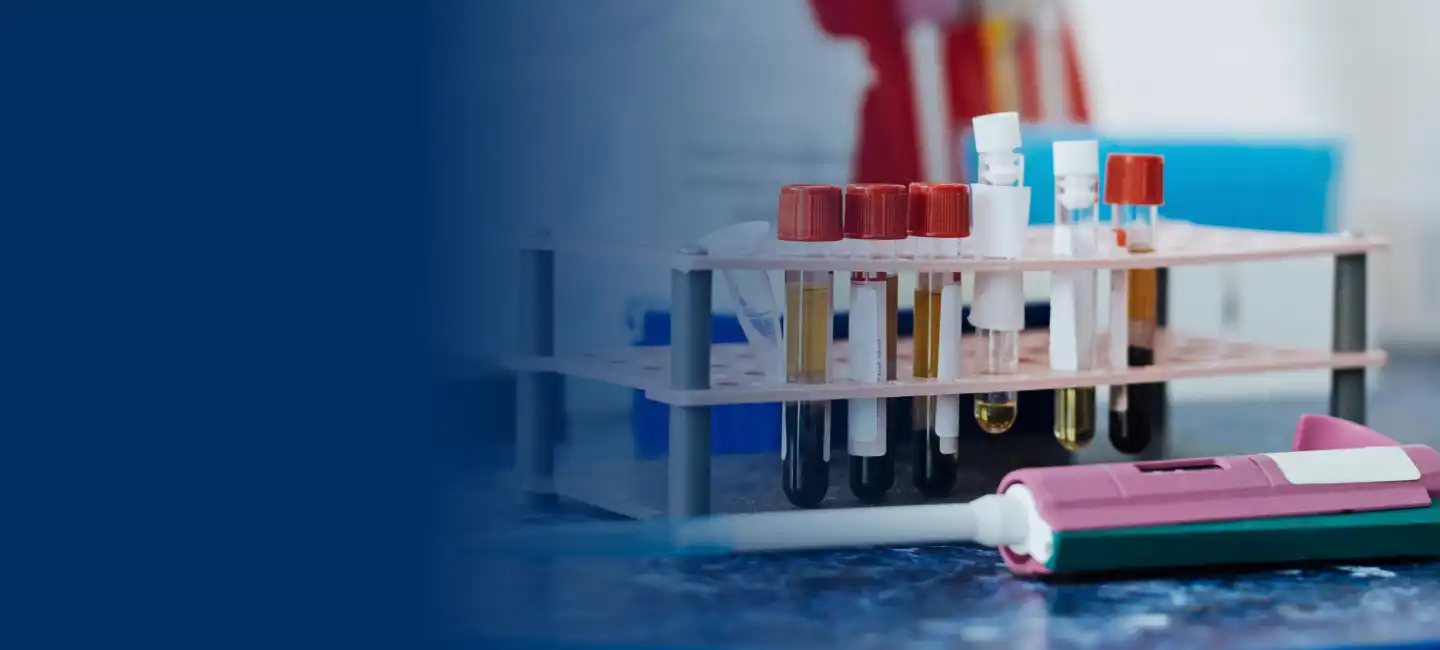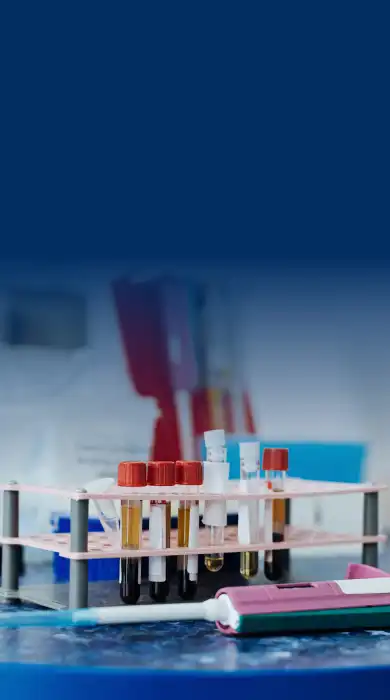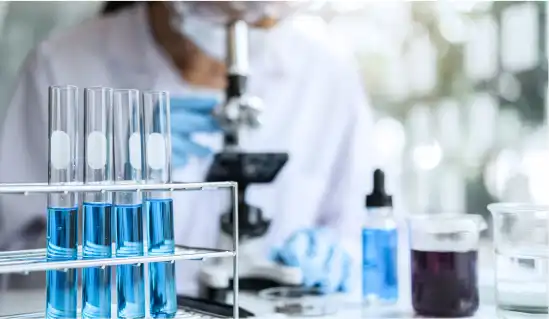We provide many tests to check for diabetes and related health issues. These include:
Blood Sugar-Related Tests
- Fasting Plasma Glucose: Measures blood sugar levels after fasting.
- Postprandial Plasma Glucose: Measures blood sugar levels after a meal.
- Random Plasma Glucose: Measures blood sugar at any time of the day.
- Glycosylated HbA1c Blood Test: Tracks long-term blood sugar control.
- C-Peptide Assay (Fasting and Stimulated): Measures the body’s ability to produce and secrete insulin.
Kidney Function Tests
- Blood Urea and Serum Creatinine: Evaluate kidney function.
- Urine P/C Ratio Microalbumin Test: Finds early signs of kidney damage.
- Urine Complete Examination: Detailed check for infections or abnormalities.
Liver Function Tests
- Liver Function Tests: Check liver health, especially for patients on medication.
Heart Care Tests
- Doppler Test: Examines blood flow in arteries and veins.
- ECG Test: Checks heart health and detects abnormalities.
- Lipid Profile: Checks cholesterol and triglycerides for heart health.
Vitamin D and B12 Tests
- 25-Hydroxyvitamin D: Measures levels of vitamin D, essential for bone health and well-being.
- Vitamin B12: Checks levels of vitamin B12, essential for nerve and blood health.
Electrolyte and Calcium Tests
- Serum Calcium: Assesses calcium levels for bone and nerve function.
- Serum Electrolytes: Monitors body salt levels.
Thyroid and Other Specialized Tests
- Thyroid Function Tests: Check thyroid health and hormone levels.
- Biothesiometry: Assesses nerve sensitivity in diabetes patients.
- Haemogram: Helps detect anemia, infections, and other blood disorders.



